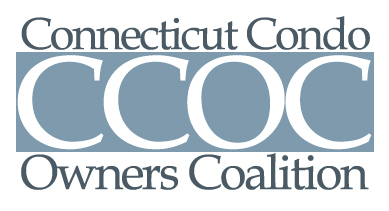Does Condo Class Action Lawsuits Make Sense For Connecticut?
One of the chief problems with court litigation to enforce owner rights is cost. Unit owners don’t have the money. The State does not have the money. There may be a low cost solution.
Perhaps, the answer is to create a special type of litigation, like a “condo class action,” in which two or more unit owners could bring an action against the board on behalf of all unit owners.
To start a class action in Connecticut is difficult. The procedure is outlined below. A special type of condominium class action could be created that would not need all of the prerequisites of a regular class action.
The requirements could be 1. The action is by two or more condo unit owners, 2. the issue affects all condominium owners in the complex, i.e.,( rule application, document interpretation, failure to maintain common elements, election fraud.), 3. the issue is covered by CIOA.
A successful condo class action would require that the court award a reasonable attorneys’ fee to plaintiffs or a certain minimum damage amount. The unit owners would have to make a written demand on the board before litigation is started.
Florida has a statute that allows an association to bring a class action. Why not extend it to a certain number of unit owners. Florida Law:
1.221 Homeowners and Condominium Assocs
A homeowners’ or condominium association, after control of such association is obtained by homeowners or unit owners other than the developer, may institute, maintain, settle, or appeal actions or hearings in its name on behalf of all association members concerning matters of common interest to the members, including, but not limited to: (1) the common property, area, or elements; (2) the roof or structural components of a building, or other improvements (in the case of homeowners. associations, being specifically limited to those improvements for which the association is responsible); (3) mechanical, electrical, or plumbing elements serving a property or an improvement or building (in the case of homeowners. associations, being specifically limited to those elements for which the association is responsible); (4) representations of the developer pertaining to any existing or proposed commonly used facility; (5) protests of ad valorem taxes on commonly used facilities; and, in the case of homeowners. associations, (6) defense of actions in eminent domain or prosecution of inverse condemnation actions. If an association has the authority to maintain a class action under this rule, the association may be joined in an action as representative of that class with reference to litigation and disputes involving the matters for which the association could bring a class action under this rule. Nothing herein limits any statutory or common law right of any individual homeowner or unit owner, or class of such owners, to bring any action that may otherwise be available. An action under this rule shall not be subject to the requirements of rule 1.220.
Below is the convoluted process for class action in Connecticut:
f (1) the class is so numerous that joinder of all members is impracticable, (2) there are questions of law or fact common to the class, (3) the claims or defenses of the representative parties are typical of the claims or defenses of the
class, and (4) the representative parties will fairly and adequately protect the interests of the class.
and
(1) the prosecution of separate actions by or against individual members of the class would create a risk of: (A) inconsistent or varying adjudications with respect to individual members of the class which would establish incompatible standards of conduct for the party opposing the class; or (B) adjudications with respect to individual members of the class which would, as a practical matter, be dispositive of the interests of the other members who are not parties to the adjudications or substantially impair or impede their ability to protect their interests, or (2) the party opposing the class has acted or refused to act on grounds generally applicable to the class, thereby making appropriate final injunctive
relief or corresponding declaratory relief with respect to the class as a whole; or (3) the court finds that the questions of law or fact common to the members of the class predominate over any questions affecting only individual
members and that a class action is superior to other available methods…
Attorney Patricia A. Ayars of Glastonbury is a member of the Connecticut Condo Owners Coalition advisory committee.
(860) 652-7070






Ms.Ayars,
I have bought a condo unit 10 years ago paying $135,000.00
Now the value of the unit is about $87,000.00 . Out of 16 buildings in the Highate Complex in Watertown CT.three of them do not have decks attached to their units.At the time of closing a welcome was presented to me and described the structure of the units.It defined the difference between the Common Elements and Limited Common Elements in writing.
It says that Limited Common Elements as:decks ,front stoop and driveway, even they are outside the units they serve exclusively a unit and the owner of that unit is responsible with the repair and replace of them. Yet the association is imposing on 1/3 out of the 126 units to pay $ 2000.00 each ,for the repair of the decks of the other 2/3 of the units. It is just to lower the cost of the payments of those who have a deck.I have to mention that all Board of Directors have an avid interest in it because benefit by a deck.
Every time when I was approached bu a buyer the first question was whether I had a deck.
I paid my monthly common fee of $ 369.00 without skipping a payment.
Yet the Attorney Pilicy who represent CM Management didn’t allow the last two my payment to go towards my unit expenses just to prove that I am late and put me for collection.
The two thousand I am asked to pay for others doesn’t benefit my unit value.I have sent all information I related above yet they are ready to put my unit for closure if not paying the $ 2000.00.
Was I deceived when I bought my unit? If I have known it I would have stepped back from it.
Please advise me what to do.
I appreciate it in advance,
Domnitsa Uilean at Highgate condos Watertown CT C11.
i will pass your complain to Pat but in the meanwhile let me warn you that they can legally foreclose on your condo for failure to pay, George
I am sorry Mr,Gombossy but I have to contradict you.
You must know that you cannot give such an opinion until you verify the Declaration and Bylaws of Highgate Condominiums.
The Declaration defines the Common area as follows;
“Each owner has a right to use the Common Areas in common with other unit owners.However,no owner shall have the exclusive right to use any portion of the Common Areas to exclusion of any other Owner”. A deck doesn’t fit this definition and more than that my unit doesn’t have a deck.Have you heard about two new laws in Connecticut which were necessary to be implemented to protect the owners?
Limited common elements are common elements. Expenses for limited common elements usually are allocated in the same way as expenses for common elements, to all of the units.There are exceptions, but it really depends on the documents. One of the exceptions is something like what you describe.
Only an attorney can review the documents for you and see what they documents say. If you are going into foreclosure, you need to get an attorney to defend you. If Attorney Pilicy is collecting your money, it would appear that you had missed some payment, perhaps some portion of the $2000. I would guess that the $2000 is a special assessment. If you are behind, some Associations will not accept payments unless you pay everything or enter into a payment plan.
Pilicy does not work for CM, but for the association.
I urge you to hire an attorney quickly.
This transmission may contain confidential or privileged information. This information is intended for use by the individual or entity e-mailed. If you are not the intended recipient, be aware that any disclosure, copying, distribution, or use of the contents of this information is prohibited. If you have received this e-mail in error, please notify us by telephone immediately so that we may make arrangements to correct the error
From: Attorney Patricia A. Ayars
Ayars & Associates, L.L.C.
381 Hubbard Street
Glastonbury, CT 06033
Tel.: (860) 652-7070 Fax: (860) 652-7073
Thank you for your advise.I hired a lawyer to addressed my repeatedly personal request, which was not taken in consideration, by the Attorney Pilicy Law Firm.The mentioned firm had no legal answers to my attorney’s questions because in fact the Condos Declaration and Bylaws didn’t sustain the firm claims.At this point the harassment stopped.Thank you again for your legal advise.
congratulations